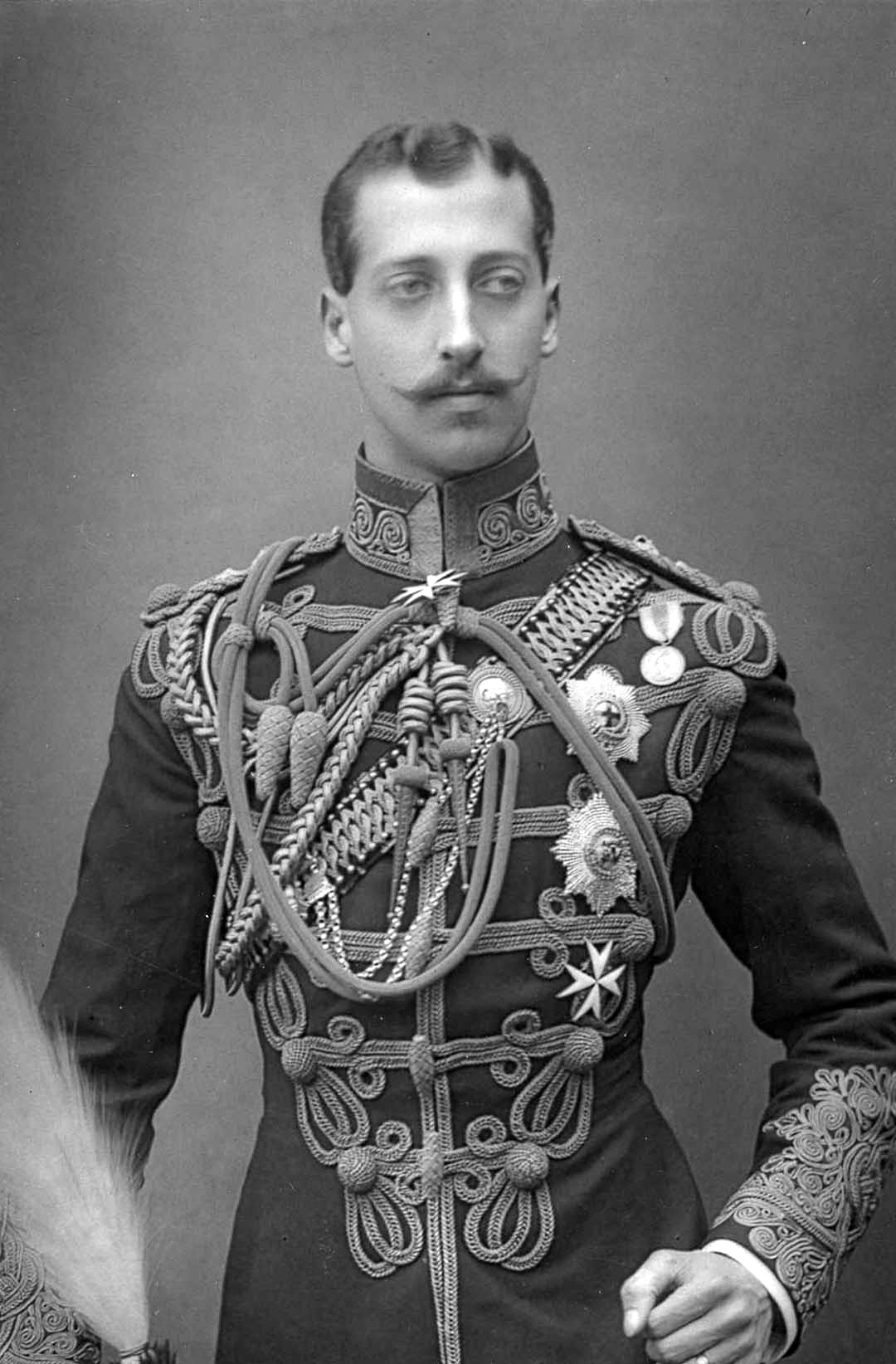Search
Prince Albert Victor, Duke of Clarence and Avondale

Born January 8, 1864 - Died January 14, 1892
Prince Albert Victor, Duke of Clarence and Avondale was a member of the British Royal family the grandson of Queen Victoria and the son of King Edward VII.
Albert Victor was born January 8th, 1864 at Frogmore House, Windsor, Berkshire, England. He was two months premature, on which some blamed on his educational difficulties. His education did not begin until his younger brother Prince George of Wales (later King George V) was born a year and six months later. Initially Albert Victor and his brother had a tutor. The tutor felt Albert Victor's mind was "abnormally dormant" although there were various theories by family members when it came to this. It ranged from the believe Albert Victor had inherited his grandmothers deafness, to his tutor was not very good at his job.
In 1877, Albert Victor and his brother were sent to the Royal Navy's training ship to continue their education. Their tutor accompanied them as the ships chaplain. In 1879, Albert Victor departed on a three year tour of the British Empire. Along the way they stopped in the United States and in Japan, where the two brothers got tattoos.
By 1883, Albert Victor had left his brother and the Royal Navy behind to attend Trinity College, Cambridge. Albert Victor continued to be a poor student and technically never graduated, although he received an honorary degree from the College.
In 1885, Albert Victor left Cambridge and joined the 10th Royal Hussars. A cavalary unit in the British Army stationed in York, England.
In 1889, scandal struck Albert Victor with the Cleveland Street Scandal. One of his top aides was implicated as a client of a local brothel. Male prostitutes and pimps identified one Lord Arthur Somerset as one of their clients. At the time in London homosexual acts were illegal and could result in two years at hard labor. It also led to social ostracism. Albert Victor was swept up in the accusations and rumors swirling around the scandal. Mostly based on the rumor and innuendo, many biographers of the prince feel he probably was a client of the brothel and may have been either bi-sexual or homosexual.
Later in 1889, Albert Victor went to India. It was rumored at the time he went to India to escape the scandal, although this is not true since the trip had been planned before the scandal broke. During the trip, Albert Victor met a married woman named Margery Haddon. After Albert Victor's passing she claimed her son was actually Albert Victor's and should be recognized as a member of the Royal family. Even after Haddon passed away her son continued with the claim. He wrote a book, published in the United States, about his connection with the Royal family. Haddon was arrested after trying to extort money from King George V. It was then proven Haddon was born two years before his mother met Albert Victor, although attorney's for Albert Victor's estate said there were several physical encounters between Mrs. Haddon and Albert Victor.
Albert Victor passed away on January 14th, 1892 from an influenza pandemic.
Albert Victor, despite his short life, has been portrayed, in fiction and non-fiction, repeatedly in association with the Jack the Ripper murders. Most scholars find solid evidence to prove, despite some claims, there is no way Albert Victor was responsible for the Whitechapel murders. Although no evidence exists to tie Albert Victor to the murder, various fictional books and stories have tied him to it. Most of these pop culture references have come toward the end of the 20th century and beginning of the 21st century. They include a Sherlock Holmes story, where a Albert Victor is named the murderer and the movie From Hell where Albert Victor is not the murderer, the murders occur to cover up Albert Victor's relationship with a local prostitute. The film From Hell also includes the theory it was a masonic conspiracy covering up the Whitechapel murders because a member of the fraternity, a personal physician of the Albert Victor character, was the murderer.
Albert Victor's lodge affiliation is not clear at the writing of this article. A news paper article from The South Australian Register on March 19th, 1885 states on the previous evening, Albert Victor received his initiatory degree. This coincided with his time in Cambridge. Additional evidence comes from the history of Albert Victor Lodge No. 2328 in York which is named for Albert Victor. The lodge was named in 1889 and records indicate he was asked permission for the naming. He later become an honorary member of the lodge. This request occured during his time with the 10th Hussars in York.
This article provided by Brother Eric C. Steele.